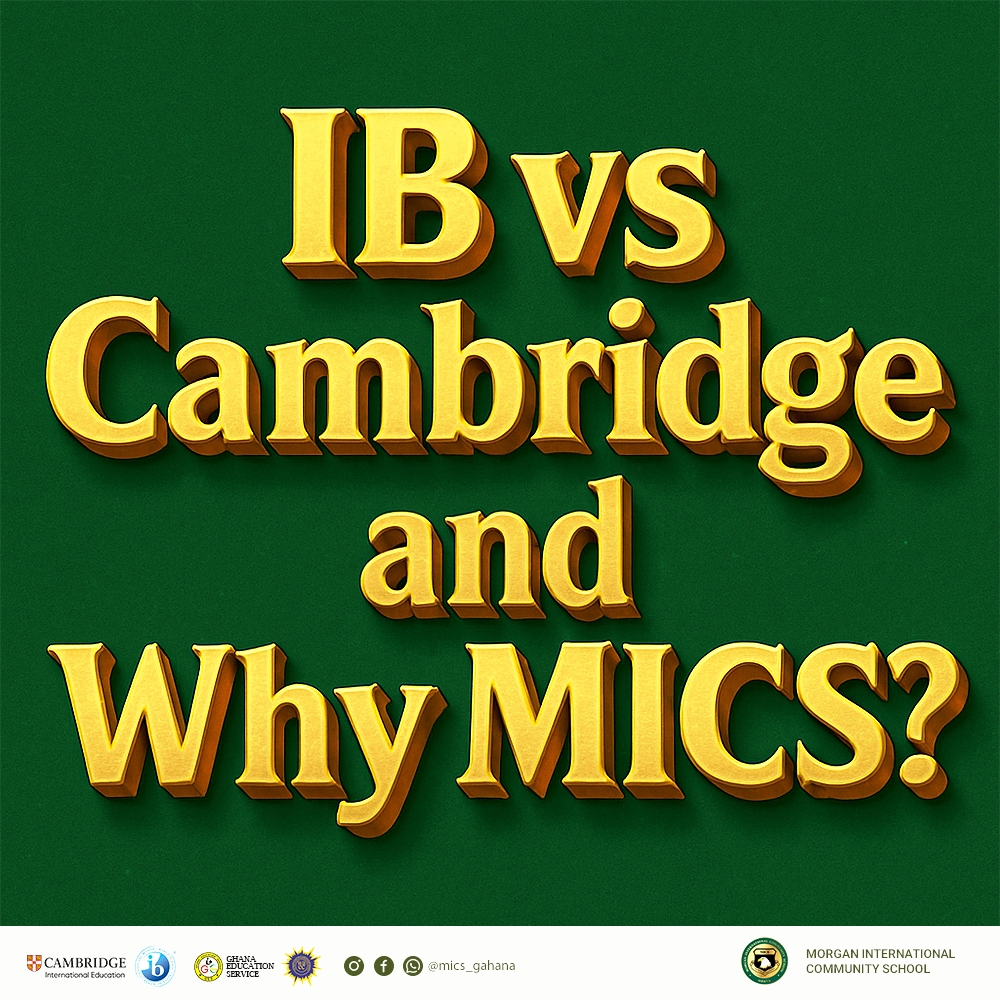Key Points at a Glance:
Curriculum Focus: IB offers holistic, inquiry-based learning while Cambridge focuses on structured, exam-driven pathways.
Assessment Styles: IB uses continuous assessments and projects while Cambridge relies on final exams.
Global Recognition: Both are widely respected, but IB often has a stronger appeal with international universities.
Skills Development: IB builds critical thinking and global awareness while Cambridge sharpens subject knowledge and analytical skills.·
Choosing Between IB and Cambridge
Parents often wonder which curriculum will give their child the best chance to succeed in the global space. The International Baccalaureate (IB) and Cambridge Assessment International Education (Cambridge) are two of the most popular choices. Both open doors to top universities, but they take very different paths. Here’s what you need to know.
Curriculum Structures
International Baccalaureate (IB)
The IB curriculum is designed to develop students who are curious, independent, and globally minded. It encourages students to ask questions, think for themselves, and connect what they learn to the real world.
Key Stages:
- Primary Years Programme (PYP): It builds curiosity and social skills while laying a solid academic foundation.
- Middle Years Programme (MYP): It helps students link subjects together and see how their learning applies beyond the classroom.
- Diploma Programme (DP): It is a challenging two-year course that prepares students for university. It combines six subjects with the Extended Essay (a 4,000-word research project), Theory of Knowledge (critical thinking), and Creativity, Activity, Service (CAS), which promotes leadership and community service.
Cambridge Curriculum
The Cambridge system is structured, exam-focused, and widely used in international schools. It gives students clear academic pathways and allows them to specialize early.
Key Stages:
- Cambridge Primary (Ages 5-11): It focuses on English, Maths, Science, and other basics.
- Cambridge Lower Secondary (Ages 11-14): It introduces more subject options like Business, History, and Foreign Languages.
- Cambridge IGCSE (Ages 14-16): Students typically take about 7 to 10 subjects and prepare for external exams.
- Cambridge International AS & A Levels (Ages 16-19): Students choose 3 or 4 subjects to study in depth. These courses are highly respected for university entry, especially in the UK and Commonwealth countries.

Assessment Styles and Learning Approaches
IB Assessments
- Continuous projects, essays, and presentations.
- The Extended Essay encourages deep research.
- The Theory of Knowledge (TOK) course builds critical thinking.
- Students are marked on both internal and external work.
Cambridge Assessments
- Final exams carry most of the weight.
- Less focus on projects or school-based assessments.
- Grading is based on accuracy and strong written answers.
Global Recognition and University Pathways
International Baccalaureate (IB)
- IB is well-known in Europe, North America, Australia, and Asia.
- Some universities, especially in the UK and the US, may offer advanced standing or course credits to IB graduates.
- IB students are often seen as well-rounded with excellent research skills.
Cambridge Curriculum
- Cambridge is highly valued in the UK, across Commonwealth countries, and in many international schools.·
- Strong A-Level results can lead directly to top university offers.
- Cambridge qualifications are known for their depth and academic strength.
Skills for the Future
IB Curriculum
- Teaches students to think globally and solve real-world problems.
- The Creativity, Activity, Service (CAS) programme builds leadership, teamwork, and empathy.
- Focuses on connecting ideas across subjects.
Cambridge Curriculum
- Develops sharp analytical thinking and subject mastery.
- Trains students to write clearly and argue logically.·
- Encourages discipline and strong academic habits.·
Making the Right Choice
There’s no one-size-fits-all answer. The best curriculum depends on the student.
IB might be the better fit if the student enjoys project work, independent thinking, and wants to apply to universities that value broad learning.
Cambridge could be the right path for students who like exams, prefer diving deep into subjects, and are aiming for UK or Commonwealth universities.

Why Choose Morgan International Community School (MICS)?
1. Serene and Beautiful Learning Environment
Morgan International Community School is set in a peaceful, natural setting at Gomoa Manso, far from the noise and pollution of the city. Our campus is surrounded by lush green grass, open spaces, and fresh air — the perfect atmosphere for your child to learn, grow, and thrive in safety and comfort.
2. Global Curricula for a World-Class Future
At MICS, we offer the International Baccalaureate (IB), Cambridge, and Ghana Education Service (GES) curricula. This gives students the chance to receive an education that meets international standards, while staying grounded in their local identity. Whether your child dreams of studying abroad or excelling locally, we provide the right academic foundation.
3. Focus on Whole-Child Development
Education at MICS goes beyond the classroom. We are passionate about building character, leadership, critical thinking, and creativity. From exciting co-curricular activities to leadership opportunities, every child is nurtured to become globally minded and socially responsible.
4. Technology-Enabled Learning
We embrace modern technology to make learning engaging and interactive. Our ICT labs, smart learning tools, and forward-thinking teaching methods prepare students for success in a digital world.
5. Dedicated and Caring Teachers
Our teachers are not just educators — they are mentors who guide students with patience, dedication, and personal attention. We believe every child can succeed when given the right support.
6. Vibrant, Inclusive School Community
MICS is more than just a school — it’s a family. We foster an environment where every student feels welcome, valued, and supported. We celebrate diversity and encourage students to respect and appreciate different cultures and backgrounds.
7. Safe and Supportive Environment
Our school is a place where parents can have peace of mind. From secure campus facilities to a well-supervised learning space, MICS is committed to providing a safe, nurturing home for students to flourish.
